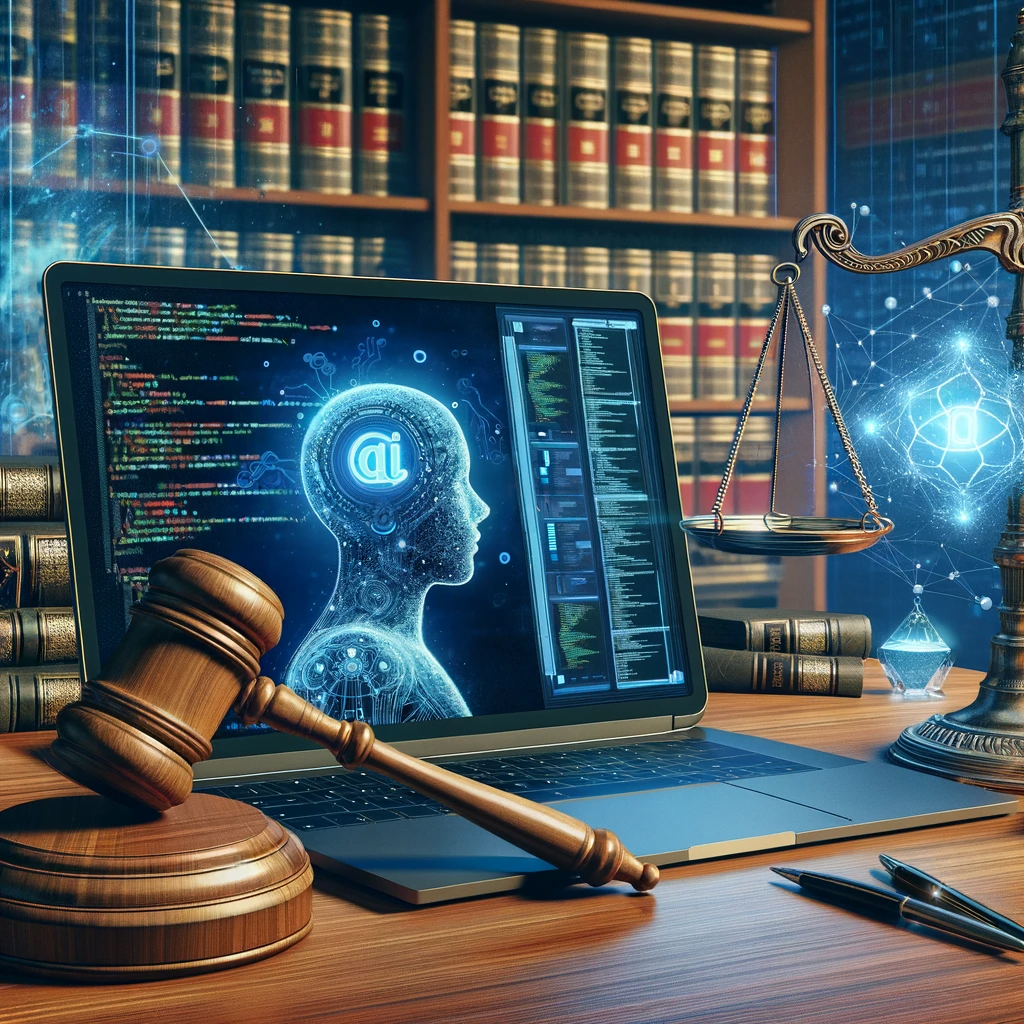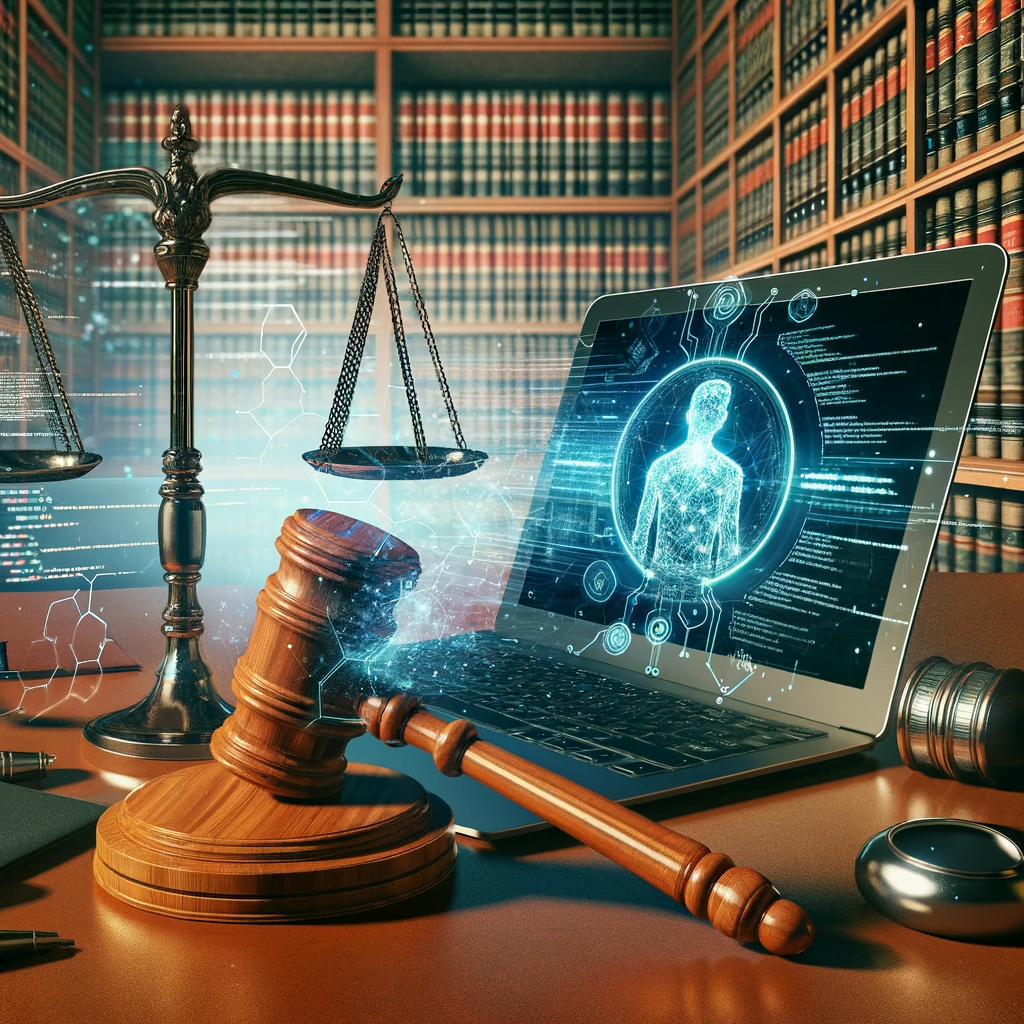THE artificial intelligence (AI) has transformed several sectors and the legal profession is no exception.
The use of artificial intelligence for law is becoming increasingly common, bringing efficiency, precision and a new dimension to legal practice.
This article explores how AI is revolutionizing the field of law, highlighting key innovations, benefits, and associated challenges.
Index

The Advancement of AI in the Legal Sector
In recent years, we have witnessed exponential growth in the use of artificial intelligence technologies in the legal environment.
Advanced software, capable of performing tasks ranging from analyzing large volumes of data to predicting legal outcomes, is changing the way lawyers work.
Document Analysis and Management
One of the most impactful applications of AI in law is in document analysis and management.
AI-powered software can quickly review, organize, and extract critical information from vast data sets, a job that would previously have required hours or days of manual labor.
This efficiency not only saves time, but also increases accuracy by reducing the risk of human error.
Prediction of Judicial Results
Another notable area is the ability to predict court outcomes. Using machine learning algorithms, AI can analyze court decision histories to predict possible case outcomes.
This tool provides lawyers with valuable insight when developing defense or negotiation strategies.
Automation of Routine Tasks
The automation of routine tasks, such as filling out forms and scheduling appointments, is also a reality thanks to artificial intelligence for law.
This allows legal professionals to focus on more complex and strategic activities.
Benefits of AI for Lawyers and Clients
Implementing AI in law brings significant benefits to both lawyers and their clients.
Improved efficiency and accuracy lead to reduced costs, which can be passed on to customers.
Furthermore, the ability to analyze large amounts of information and predict judicial trends provides an invaluable competitive advantage.
Challenges and Ethical Considerations
Despite the benefits, the adoption of AI in law is not free from challenges.
Ethical issues such as data privacy and legal liability in case of errors made by AI systems are of utmost importance.
Additionally, there is concern about machines replacing human labor, although many experts argue that AI serves more as a tool of assistance than replacement.
The Future of Law with AI
The future of law with the help of artificial intelligence is promising. AI is expected to continue to develop,
bringing even more innovations to the legal field. The integration of AI with other emerging technologies, such as blockchain and predictive analytics, promises to further transform the practice of law, making it more efficient, safer and accessible.
Personalizing Customer Service
With the advancement of AI, customer service in law can become more personalized.
Artificial intelligence for law can help analyze the specific needs of each client, offering legal solutions that are more aligned with their individual expectations and realities.
This not only improves the customer experience but also increases the effectiveness of the legal services provided.
Continuous Professional Development
For lawyers, adopting AI requires constant updating of knowledge and skills.
This implies a continuous investment in learning and adapting to new technologies.
The ability to work together with AI-based solutions will be an essential skill for professionals of the future.
AI as a Tool for Access to Justice
One of the most promising aspects of artificial intelligence for law is its potential to increase access to justice.
AI-based tools can make legal services more accessible and affordable for a larger portion of the population, democratizing access to legal assistance.

Conclusion on artificial intelligence for law
Artificial intelligence for law is not just a trend, but a constantly evolving reality.
It offers countless opportunities to transform legal practice, making it more efficient, accurate and accessible.
While there are challenges, especially with regard to ethics and privacy, the benefits that AI brings to the field of law are undeniable.
As we continue to explore and integrate these technologies, the future of law looks increasingly innovative and promising.
